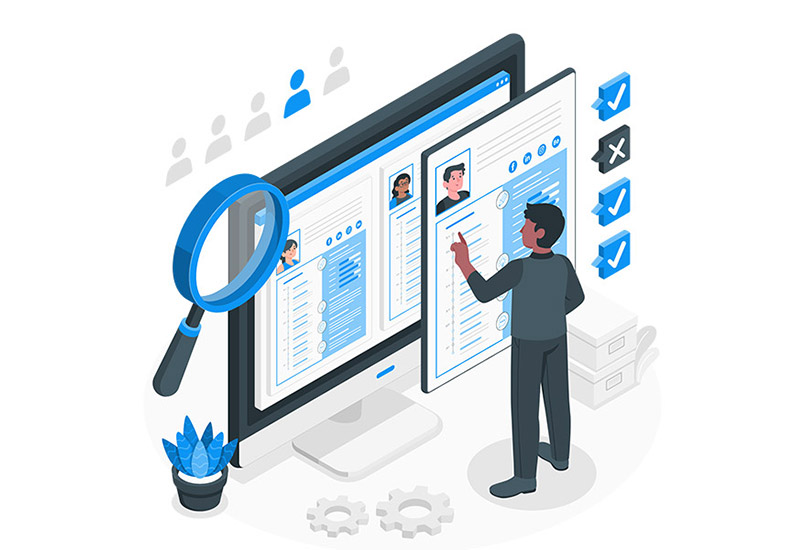How to Effectively Collaborate with a Remote Market Research Analyst
The way we work has undergone a sea change in the last few years. In 2019, fewer than 6% of employed people in America and Europe worked primarily from home.
All that changed when the COVID-19 pandemic accelerated the adoption of remote work. Businesses now expect that in 5 years more than half their workforce would be working remotely, at least some of the time.
Remote work has also made it easier to work with professionals outside of the firm, and companies are realizing the benefits of partnering with freelancers.
Benefits of Hiring a Remote Market Research Analyst
Here are some of the advantages of hiring a freelance market research expert.
First, it enables smaller companies to employ niche talent they may not otherwise be able to access. Second, it allows companies to save money by hiring analysts just for the duration of a project. Third, it makes it possible to hire internationally. This is especially valuable when you’re looking to conduct research in a foreign target market.
However, remote collaboration comes with its own challenges. Most of the issues boil down to unclear expectations and a lack of communication.
Here are some best practices you can follow to avoid these issues and collaborate with your remote insight expert effectively.
Best Practices for Effective Collaboration with Remote Market Research Analysts
- Conduct a discovery call
A discovery call is an initial conversation between a client and an expert. It is an opportunity for both parties to get to know each other. It can be used to build rapport, gain insight into each other’s ways of working, and share basic information about the project. Discovery calls can help in establishing trust with the remote analyst
2. Set expectations early on
Use the discovery call to set clear expectations and align on how you will work together. This will ensure that everyone is on the same page on the scope of work and other parameters of the project.
3. Decide payment terms
Another item that can be discussed during the discovery call is the payment structure and frequency. While the details can be laid out in a formal contract later, it might be good to work out an agreement that makes sense for both your company and the expert.
4. Write a clear brief
After the initial verbal discussion, the next step is to write out a detailed brief. The brief should have all the information about the project that the remote expert will need to be aware of. Make sure to include budget, timelines, and deliverables in your brief.
Read our article about the 10 Essential Elements of a Market Research Brief to know what to include.
5. Establish meeting cadence
Once the project is underway it can be easy to lose track of it. To avoid this, set up meetings at a regular frequency or cadence to check in with the expert. This could involve having weekly calls to get started with and more spaced-out meetings later on in the project timeline. Doing so will help you stay updated with the progress of the project. It will also give the experts a chance to communicate any issues they’re facing or clarify any points they’re not sure about
6. Use Project Management Tools
One of the biggest challenges with remote collaboration is project management. That’s where technology can be of help. Use appropriate remote collaboration tools for ease of communication, sharing of files and information, and task tracking.
We’ve listed some of the most popular tools available for effective collaboration with a remote insight expert below.
Follow the best practices mentioned above to ensure a smooth and seamless collaboration with your remote market research analyst.
List of Popular Remote Collaboration Tools
These are some of the most popular remote collaboration tools in the market today. You may already be familiar with (or already using) some of these tools. This is in no way an exhaustive list, but somewhere for you to start exploring the features of each.
- Communication tools
- Video conferencing – Zoom, Google Meet, GoTo Meeting
- Live chat/community – Slack, Microsoft Teams
- Cloud Storage/File Sharing – Google Drive, Dropbox, Confluence
- Project Management – Asana, Trello, Basecamp, Jira
There are no remote collaboration tools specifically designed for the market research industry. Most of these tools are free to use and industry-neutral. Meaning, they can be used for the need of any industry or market. At Insightgig we use a combination of the above to work with our own remote teams!
During our 15 years of hands-on market research experience, we have encountered challenges from both the client’s perspective as well as that of the remote expert. Consequently, we’ve built the Insightgig platform to facilitate easy remote collaboration.
Our Collaboration module has a live chat feature that allows you to communicate with your remote resource in real-time. Our Project Management module and milestone capabilities give you a clear and transparent view of project progress.






